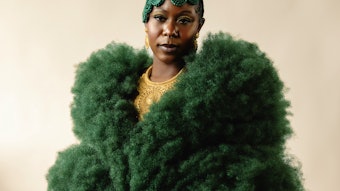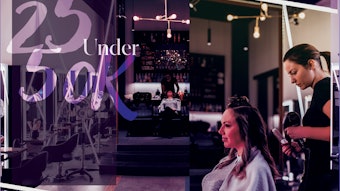 alk to top stylists about their experiences with mentoring and why it is important. Read on to find out what they had to say!
alk to top stylists about their experiences with mentoring and why it is important. Read on to find out what they had to say!
Michael's thoughts on mentoring: One of the most profound moments of my career was when I had a new hairdresser come and say to me, “I heard you just came back from overseas and you studied for 2 years. What did you do there? Can you teach me some of that?”
I went overseas because of a need to learn from one of the styling masters in Paris, and I was thrilled when the request was asked of me. I knew then I could be a mentor because the feeling was similar when I asked one of the hairdressers in my first job with the core team at Vidal Sassoon, “Can you show me how you do that”? And it began. Training hairdressers is such a fulfilling feeling I can only say humbly, thank you all for the opportunity, we are in an amazing industry.
1. What is the importance of mentoring? How important is a mentoring culture within a salon?
Michael Haase: Mentoring is important because it is a commitment to the future of hairdressing. It is our responsibility to pass on the history of the original creators of all disciplines in our craft. From professionalism to color, cutting, styling and all the parts within need to be translated for the next generation of hairdressers.
2. What are ways one can be a mentor?
Mentoring can begin with something as simple as the basics of etiquette and personal attitude. Teaching hand, eye and brain coordination can help stylists “see” more clearly, allowing them to define shapes and color to follow.
3. What is the difference between education and mentoring?
Education is very elemental while mentoring is a direct commitment of a one-on-one relationship between mentor and mentee. The relationship is engaging two minds that will dissect the skills of our craft in a personal way.
4. What is the benefit of continuing education?
“Education is a want not a need.” Styists need education to succeed in whatever they do, however you have to want it, otherwise there is no commitment. Vidal one told me, “Its up to you." Wisest words ever.
5. How has mentoring helped you personally?
There is a wonderful humbleness that comes from mentoring. Releasing the ego during mentoring is extremely import to be able to share and give with integrity to the new breed. It is not what we know, it is how well others learn from us and reap the benefits of that knowledge.
6. Does one decide to be a mentor, or is it innate?
Mentors come in all shapes and sizes. If you have had mentors in your past that truly gave you their knowledge of history in skill, you will end up passing that along. I feel it is not only an obligation to give this knowledge, but when you see a new hairdresser get a concept or an idea or “trick,” and they get it for the first time, it’s like winning the lottery. So exciting!
7. Where do stylists need the most help in education?
Stylists need the most education on the basics. The tricks of the trade, shape building, design, tool manipulation, inspiration and much more. I can honestly say it is work form “the old days made new." Taking what we call fundamentals and altering them to today’s fashion and incorporating those basics in styles today. That’s why learning the essentials is a must for any stylist to succeed today.
8. Once a stylist decides to become a mentor, what is the next step?
When acting as a mentor, it is extremely important to not only continue your own education, but also to study the habits of teaching because everyone learns differently. You must be able to help the mentee learn by learning how they learn. This might be confusing, but as you teach you’re able to figure out how the other learns best.
9. If not already in place, how can a stylist begin a culture of mentoring in his/her salon?
We all want to be recognized in some way for the skills that we have, and one of the best ways this can be shared is by mentoring. Opening your heart and mind to help others and provide information that will help them become more successful without payback is very rewarding. You would be amazed at how good it feels to pass on the information that was once shared with you by your mentors.
10. How can a stylist find his or her own mentor?
Finding a mentor is easier than you think. You need to commit, engage, and be fully responsible for the consequences of learning; you need to ask! To be humble in asking and admitting you need help in an area of special skill is not always easy but it is the first step. “I want to learn how to do that, will you please help me,” has happened in my career many times and it still is in my vocabulary today. We need to have a respect for our mentors since they learned from the original industry greats, and we have a responsibility to create newness from the old, continuing to grow what we know and what we want to be good at. We are hairdressers and what we do is learn, every single day, and if we turn around and look, someone will be there to help guide, it’s all up to us.
[Image: Thinkstock]











